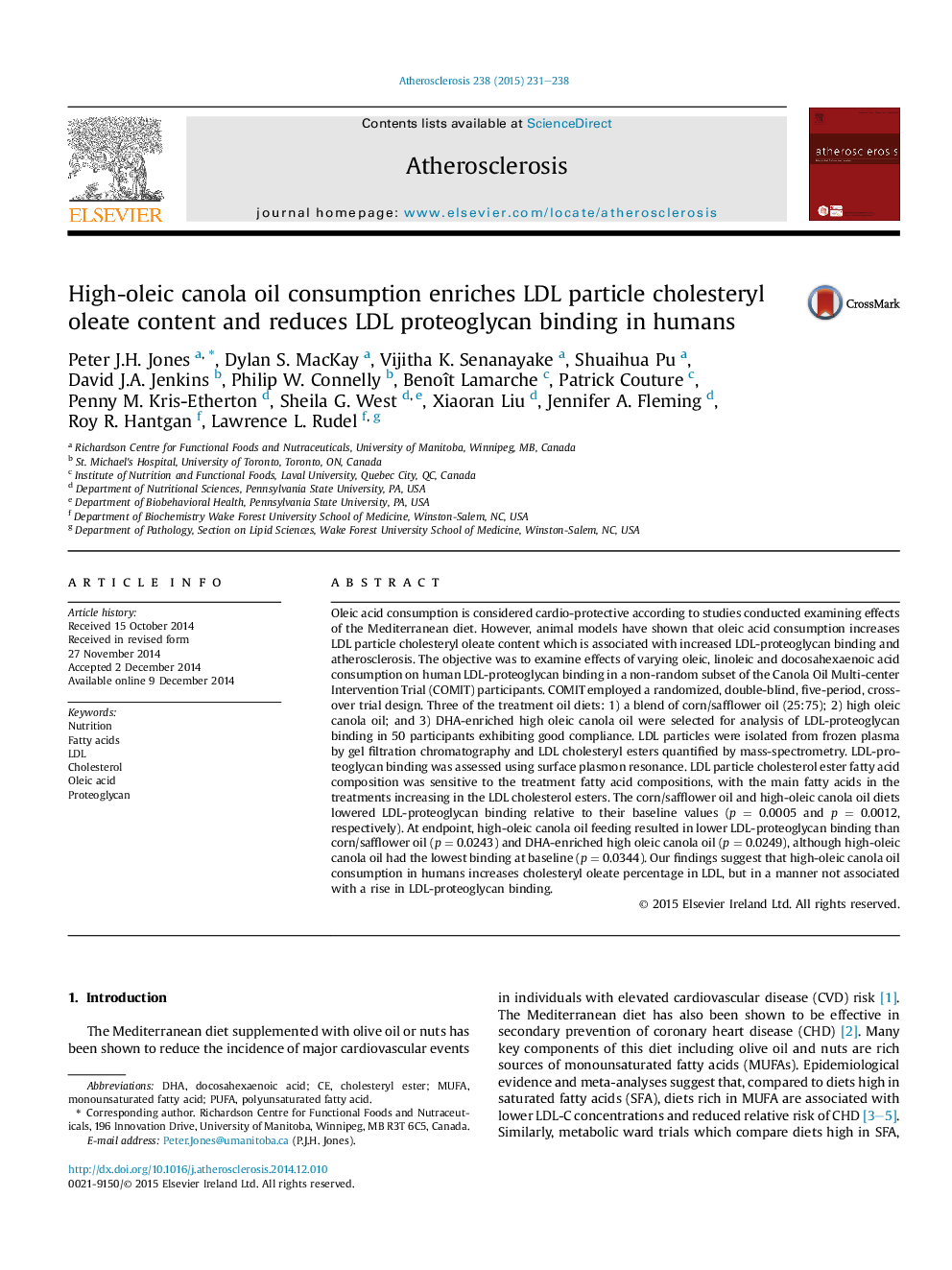| کد مقاله | کد نشریه | سال انتشار | مقاله انگلیسی | نسخه تمام متن |
|---|---|---|---|---|
| 5945509 | 1172351 | 2015 | 8 صفحه PDF | دانلود رایگان |

- Consumption of high oleic acid canola oil for 4 weeks led to a small enrichment of oleic acid in LDL cholesteryl esters.
- Enrichment of LDL with cholesteryl oleate was not associated with increased LDL-biglycan binding.
- Both the high oleic acid canola oil and the corn/safflower oil diet, led to small reductions in LDL-biglycan binding.
- Results differ from animal trials where LDL particle cholesteryl oleate content was associated with LDL-biglycan binding.
- Findings are consistent with evidence that diets rich in vegetable sourced oleic acid have benefits for cardiovascular health.
Oleic acid consumption is considered cardio-protective according to studies conducted examining effects of the Mediterranean diet. However, animal models have shown that oleic acid consumption increases LDL particle cholesteryl oleate content which is associated with increased LDL-proteoglycan binding and atherosclerosis. The objective was to examine effects of varying oleic, linoleic and docosahexaenoic acid consumption on human LDL-proteoglycan binding in a non-random subset of the Canola Oil Multi-center Intervention Trial (COMIT) participants. COMIT employed a randomized, double-blind, five-period, cross-over trial design. Three of the treatment oil diets: 1) a blend of corn/safflower oil (25:75); 2) high oleic canola oil; and 3) DHA-enriched high oleic canola oil were selected for analysis of LDL-proteoglycan binding in 50 participants exhibiting good compliance. LDL particles were isolated from frozen plasma by gel filtration chromatography and LDL cholesteryl esters quantified by mass-spectrometry. LDL-proteoglycan binding was assessed using surface plasmon resonance. LDL particle cholesterol ester fatty acid composition was sensitive to the treatment fatty acid compositions, with the main fatty acids in the treatments increasing in the LDL cholesterol esters. The corn/safflower oil and high-oleic canola oil diets lowered LDL-proteoglycan binding relative to their baseline values (p = 0.0005 and p = 0.0012, respectively). At endpoint, high-oleic canola oil feeding resulted in lower LDL-proteoglycan binding than corn/safflower oil (p = 0.0243) and DHA-enriched high oleic canola oil (p = 0.0249), although high-oleic canola oil had the lowest binding at baseline (p = 0.0344). Our findings suggest that high-oleic canola oil consumption in humans increases cholesteryl oleate percentage in LDL, but in a manner not associated with a rise in LDL-proteoglycan binding.
Journal: Atherosclerosis - Volume 238, Issue 2, February 2015, Pages 231-238